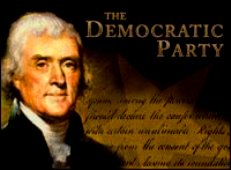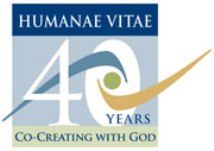Now that America is post-Election 2008, the news media and political pundits -- as well as both the Democratic and Republican parties -- busy themselves with a host of questions. What went wrong? What went right? What could we have done differently? How can loss ground be made up in the 2010 Midterm Elections and again in the 2012 Presidential Elections? In many ways, people are baffled by the outcome of this election. A few people claimed that there was no way Barack Obama could win as he is the most liberal candidate to run for the United States' highest-ranking office. Obama not only won, he carried the three major swing states: Ohio, Pennsylvania, and Florida and topped it off by turning Indiana, North Carolina, and Virginia from "red" to "blue." Clinton made the argument in the primary season that no Democrat since 1916 has made it to Pennsylvania Avenue without winning West Virginia. Obama didn't carry West Virginia. It isn't conclusive yet, but it seems that he even loss Missouri by a small margin -- a state virtually no president (except one) has made it to the White House without winning for over a century.
The election is over. But what's striking to people is the electoral map. It changed. Have the demographics altered or is there something else? I think the "new kind of politics" movement -- which is essentially old politics calling itself something different -- and "Change You Can Believe In" really begs a more fundamental question. What does this "new kind of politics" consist of? What are its moral values? What will the government be like and how will the American people reach common ground ? The more specific you get with these questions, the more you realize that the Democratic President-elect Barack Obama is only delivering the Democratic Party's platform and nothing else -- nothing new, nothing wide-ranging, and nothing bipartisan.
But back to the fundamental questions that the notion of "change" brings to the table, there is a more fundamental reality that often goes unnoticed, that is at work that needs our attention. I've said before that as a Catholic Democrat, I can't help but notice the hyper-liberal, pro-sexual revolution and radical feminism movement in my party and how it has managed to silence the rest of us. To this day, I agree with Democrats often enough on policy, e.g. universal healthcare, but not always on principle, i.e. the view of the human person, of marriage, of society, and on the nature of morality and thus the content of those policies. Modern liberalism is deeply influenced by Enlightenment thinking. The human person is an arbitrary being with no real "nature." Marriage is nothing but a legal contract recognizing that two people are committed to one another -- if anyone cares -- that want government benefits. Society has no real standard or moral objective norm to live up to because human's have no inherent nature and because this is so, society is something that evolves -- it is artificial and arbitrary -- and thus it can be influenced as we see fit. This view is not the liberalism I subscribe to as it is not compatible with my Christian faith.
Though in realizing this, it strikes me that the "culture wars" in America and the political divide that is even finding its way into our churches all point to one fundamental reality: identity. In the modern world, as is held by contemporary liberalism, the notion of God is both arbritrary and dubious. Supposedly, the presence or absence of God from one's life has no substantial bearing on that person. An atheist is just as moral as any Christian. That may be well and true, but from a Christian perspective that atheist is majorly lacking. An atheist may be say "pro-life," but if human beings are nothing but a random meaningless arrangement of matter in motion -- no different in substance than a chair or a tree -- on a tiny dot called earth in a sun-beam, in a vast, cold purposeless cosmos, the idea that human beings have some sort of "dignity" or "value" is questionable. Why not destroy a few tiny cells or abort a baby? Why not kill a criminal? What really is "justice?" Why should murder be wrong, if there is no universal reason as to why it should be so? Without God, there is no objective giver of the moral law, thus no moral laws. Morality collapses on itself and becomes truly relative. But how an atheist, whose mind is composed of only matter and whose thoughts are the results of the random interaction of atoms, with no objective end or goal in mind (thus not concerned about the subject knowing any objective truth because no such reality exists), comes to any conclusion about truth, about God, etc, presupposing their views are true is beyond me. It's logically impossible.
Back to the notion of identity, America has no cultural identity. What does it mean to be an American? What are "American values?" It seems to me there are as many answers to this question as there are American people. "We the people..." as our Constitution reads have never ever been a monolithic in our way of life. This is both good and bad. Another point that is particularly relevant, especially from a Catholic perspective, is that the American political experiment in which has set the structure and molded the society in which we carry out our daily lives is wholly and entirely a Protestant experiment. In Europe, Protestantism had to establish itself within a society and culture dominated by over a millennia of Catholic intellectual, spiritual, and moral influence. Protestantism in the "new world" from its beginning did not share this dilemma, which is a manifest uniqueness to America. While Protestants share with Catholics a love of God, acknowledgement of sin and the need for conversion, a biblically-based moral system, and the necessity of family and community, Protestants also have given this country a radical emphasis on freedom, individualism, personal conscience, self-determination (versus discovering), etc. It is self-evident that the American notion of "freedom" is profoundly different than the Catholic understanding of freedom. The radical individualism, which is a result of a "sola scriptura" faith and a break from authority, imprints upon us -- I think -- a tendency to have concern only for ourselves.
Samuel Huntington, a political scientist wrote a book entitled Who Are We? He basically asserts that American identity has become increasingly more obscure. He stridently attempts to address the question in the terms of what he calls "the American Creed," which encompasses the values present in the debate that shaped America’s founding—"the essential dignity of the individual human being, of the fundamental equality of all men, and of certain inalienable rights to freedom, justice, and fair opportunity." Huntington -- before he starts making claims that I disagree with and won't go into here -- believes a central problem with American political identity is the growing immigration challenge. I agree with this to an extent. The decisive turn around in American sentiment on immigration is the composition of the American immigrant populace—for the first time in our history, the majority of immigrants in the United States speak one language and are from one country—Mexico. This unprecedented reality presents a real challenge to the question of American cultural identity.
Immigration in itself naturally leads to the development of subcultures that assimilates into some larger culture. But since those subcultures are so many, so large and so dramatically different in the United States, the larger culture is simply mere co-existence, usually with a lot of tension. There was a point in early American history where people believed in manifest destiny—the notion that the United States was destined to span from the Atlantic seaboard to the Pacific Ocean. The people of the United States, while not monolithic, really shared a common experience; this is especially true for the immediate generations after the American Revolution. But in modern America, there is no singular national destiny. Huntington says that "Americanization" -- which means things such as making English the national language or requiring that everyone at least know how to speak English -- of these groups are now-a-days really "un-American." Any attempts toward "Americanization" in Huntington's view are easily dismissed as connotative racism, sexism, class domination, religious intolerance, and so on. In essence, contemporary political correctness and cultural thinking by its design complicates attempts not only to lay down defining parameters of American identification, but toward the unity of American subcultures versus the tension of co-existence.
Most recently, I read a book called The Big Sort by Bill Bishop which I can't recommend enough. He is more on point than Huntington in my view. Bishops' thesis is simple: Americans have segregated themselves both politically and culturally. It is a natural human tendency to gravitate toward like-minded individuals. Given that at the social level, humans seek those whom they can identify with and given that the ownership of private property is a right, it follows that, if possible, people will move to places where there are people like them, which naturally makes them more comfortable. However, the often unseen consequence is that America has divided itself into communes which are entirely culturally and politically conservative or liberal. Bishop puts it this way:
America may be more diverse than ever coast to coast, but the places where we live are becoming increasingly crowded with people who live, think, and vote like we do. This social transformation didn't happen by accident. We've built a country where we can all choose the neighborhood and church and news show — most compatible with our lifestyle and beliefs. And we are living with the consequences of this way-of-life segregation. Our country has become so polarized, so ideologically inbred, that people don't know and can't understand, and can barely conceive of "those people" who live just a few miles away.This evident tendency is self-reinforcing. The more a specific region is monolithic politically, the more extreme the group can get. This, of course, turns-off people of the opposite view or those of a more moderate view, which allows the region to be even more monolithic. At the political level, local election between two parties is absurdly non-competitive. Depending on the demographics and thus, the political orientation, one party usually wins the area in a landslide. Local, or even state parties have enough support to tackle virtually every issue. As can be seen, political party primaries are dominated by partisan, party activists. At the national level, this reality translates into the non-existence of moderate candidates, a partisan nightmare, and an eternal gridlock of legislative action in Congress, a war for the presidency, and most troubling of all, the Supreme Court has become a pantheon of nine gods who we fight over to ensure they share our views. [This cannot be over-emphasized!]
This living dynamic reaffirms the tendency to only listen to opinions one agrees with, have little tolerance of other views, and to become all the more extreme in one’s own perspective. A simple glance at a presidential electoral map -- broken down into county, city-wide, state, and regional patterns -- confirms this observation (view the map and click state by state and look at the breakdown by counties.) Urban areas vote dramatically different than rural ones. People at the bottom of the socio-economic scale vote dramatically different than those at the top of the socio-economic ladder. The differences in these groups matter because if like-minded people flock toward one another, prosperity can be found at its highest where the most socio-economically advantaged reside. Bishop notes that education had always predicted city growth and after the 1970s the cities that grew the fastest and the richest were the ones where people with college degrees congregated. It's not really news that intellectual elites tend to vote Democratic and not so surprisingly, the most esteemed universities and colleges in America are in areas where the wealthy and well-educated commune.
This dynamic has found its way into American churches. Many evangelical, fundamentalist Christians – in concert – enter the world of politics with concern for abortion, marriage and family issues as top priorities – none of which are negotiable. They are the current base of the Republican Party. Other Christian denominations may emphasize a "social gospel" which entails social justice, fighting oppression and bigotry, promoting personal "choice" on abortion, and accepting gays and lesbians, which leaves them in the Democratic column. In essence, religion in America is now being interpreted through the framework of political concepts, i.e. secular schools of thought. There is "liberal" Christianity and "conservative" Christianity. Many churches have become monolithic in their political views because people even prefer to worship in like-minded congregations. It's why many Protestants "church hop," particularly if they are say, a pro-choice liberal, and the pastor consistently condemns abortion and gay rights. They'll find a church that shares their view. It seems then that the measure for the "true" church or a "good" church is how it lines up with our own political views. The use of religion as political mechanism has only deepened the divide between the people and it's alienating people from God.
Just recently in listening to two political analysts debate, one of them made the comment "the values of Republicans and Democrats [the mainstream base of both parties] are very much at odds. We do not agree about the most fundamental issues." The fundamental issues are many: abortion, birth control, gay unions, guns, education, and the environment, and many more. The parties (and the people) not only disagree on policies, but on principle. The fact that the country segregates itself into isolated communities reaffirming their own beliefs versus having a meaningful dialogue only deepens the problem. It's a spiraling cycle.
Americans have arranged themselves geographically in terms of economics and politics in the last thirty years. While the free choice of where to live is wonderful, it also naturally generates economic inequity, cultural and social misunderstandings, and political gridlock. Bishop wrote an interesting line in his book: We have created, and are creating, new institutions distinguished by their isolation and single-mindedness…we have worked quietly and hard to remove any trance of the ‘constant clashing of opinions’ from daily life. It was a social revolution…entirely unnoticed.
Fundamentally, the American people isolate themselves into groups that inevitably become partisan, political think tanks form with whole, entire comprehensive agendas that are often not open to debate or revisions by opposing groups. The question of American identity, I think, is fundamental to how the country moves forward. The question of identity must be answered before you can decide what direction you need to go. A world without God is a world without an identity. American cultural identity is one of clashing and disagreement about what America is and what she should be. In some sense, that has been America’s identity since the days when the Founding Fathers debated over the Constitution of the United States and the role and structure of the government. Today, even, that same question is still being debated.
As Roman Catholics, we may not all agree with everything I've said -- all of which are not necessarily my own view, but it should give us pause. If partisanship and factions, even within the Church, is the norm of our "culture," it is ever more pressing that we be counter-cultural. We can't ever fully support secular schools of thought because they can never, no matter how well reasoned they are, encompass the fullness of truth that is in the Gospel. It's easy to fall into the temptation of partisanship, of cultural divides, and accepting the status quo, but that's not how we're called to live. Let's hold each other accountable. It's been said that because we've been conditioned by our culture, American Catholicism is -- and I quote -- "nothing more than another form of Protestant Christianity." Let's pray that the thinker who made this claim is wrong in the long-term. If we're going to advocate social change, insight as to how we have decided to arrange ourselves may prove to be useful.





































0 Comments:
Post a Comment